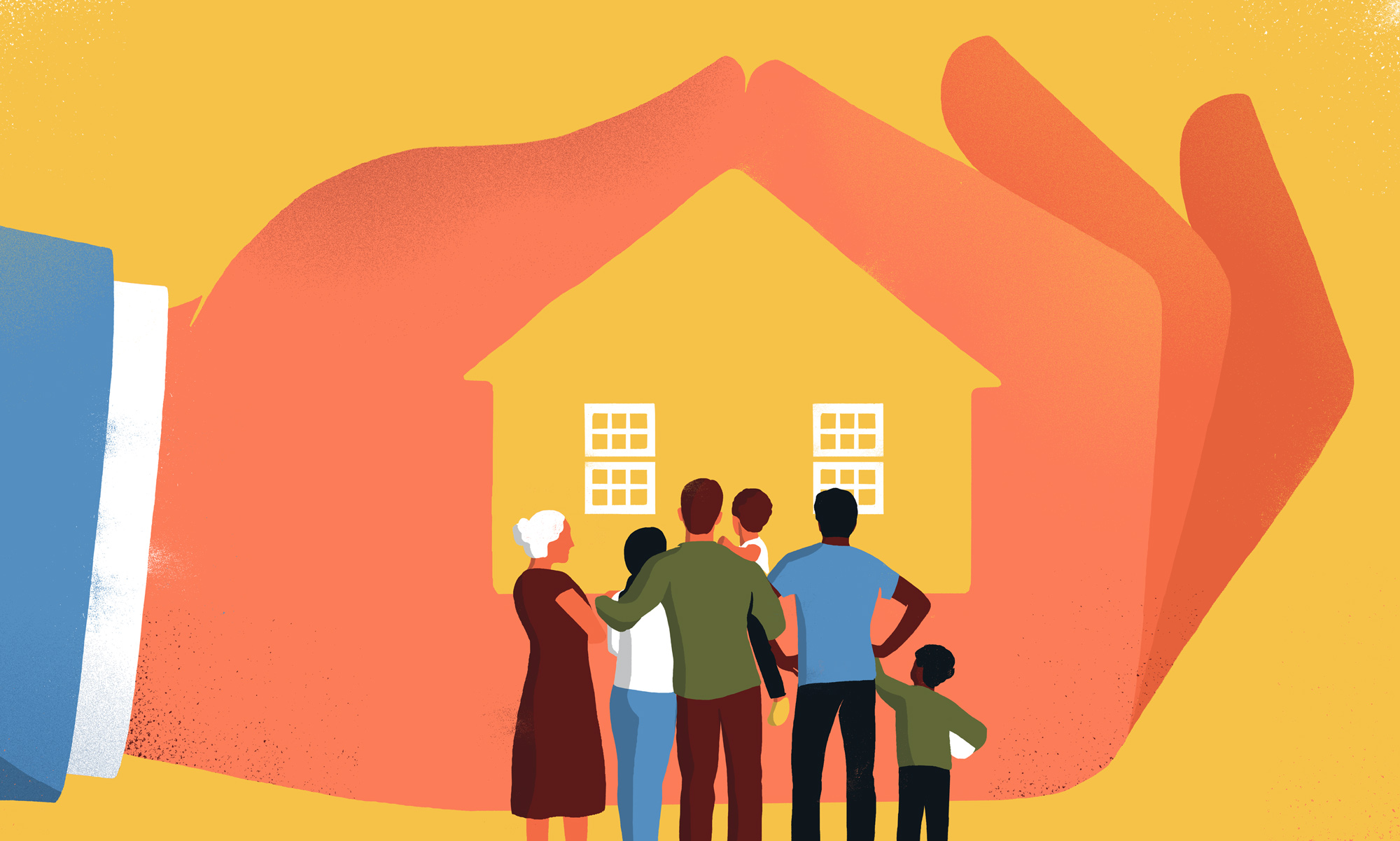The Key to Building Wealth with Affordable Homeownership
The Key to Building Wealth with Affordable Homeownership
Blog Article
Economical Homeownership Options for First-Time Homebuyers
As the housing market proceeds to develop, newbie homebuyers encounter unique obstacles in safeguarding affordable homeownership choices. Numerous sources, consisting of government assistance programs, low-down-payment mortgages, and targeted grants, have emerged to minimize monetary pressures. These initiatives not just assist in homeownership but also foster area stability and economic growth. However, browsing these alternatives can be complex, and understanding which paths are most advantageous needs mindful consideration. What strategies can prospective home owners use to maximize their chances in this landscape?
Federal Government Aid Programs
Federal government support programs play a critical duty in making homeownership attainable for several people and households. These programs intend to relieve the financial burden linked with acquiring a home, specifically for novice buyers. By offering financial help, gives, and tax obligation rewards, federal government efforts aid connect the gap in between rising real estate prices and the acquiring power of possible house owners.
Various programs are available at the federal, state, and local levels. For example, the Federal Housing Management (FHA) provides insurance coverage on car loans, enabling loan providers to provide more favorable terms, such as reduced deposits and decreased rates of interest. Furthermore, state and city governments frequently have their own campaigns, which may include deposit aid programs, buyer education and learning training courses, and favorable home mortgage terms.
These programs are developed to address the distinct obstacles encountered by low- to moderate-income families, including restricted cost savings and credit score history. By fostering an atmosphere where homeownership is more obtainable, federal government help programs not just sustain private goals yet additionally add to area security and economic growth. Recognizing and making use of these sources can substantially boost the potential customers of effective homeownership.
Low-Down-Payment Home Mortgages
For several hopeful homeowners, low-down-payment home mortgages offer a practical pathway to homeownership, specifically in today's challenging real estate market. These home mortgage choices commonly need down repayments ranging from 3% to 5%, making it much easier for newbie buyers to enter the market without the worry of saving for a significant down payment.
Various loan providers offer low-down-payment programs, consisting of traditional lendings backed by Fannie Mae and Freddie Mac, as well as government-backed alternatives like FHA lendings. These home mortgages are made to accommodate individuals with minimal savings while still providing affordable rate of interest prices. Significantly, they allow purchasers to preserve more cash for various other important costs, such as moving prices, home evaluations, and possible improvements.
However, prospective home owners ought to be mindful of the trade-offs related to low-down-payment home loans. A smaller sized deposit might cause higher regular monthly settlements and the necessity of personal home loan insurance coverage (PMI), which shields lending institutions in instance of default. It is vital for new buyers to conduct detailed study and seek advice from with home mortgage professionals, guaranteeing they pick a low-down-payment option that aligns with their long-lasting monetary objectives.
First-Time Property Buyer Grants
Lots of novice buyers discover that grants can substantially ease the economic concern of buying a home, matching low-down-payment home mortgage choices. These grants, often given by state and non-profit organizations or neighborhood federal governments, supply financial support that does not require payment, making them an eye-catching choice for those entering the housing market.
Eligibility for newbie buyer gives usually relies on revenue, credit reliability, and the purchase rate of the home. Many programs are created to help reduced- to moderate-income households, making sure that support gets to those who require it most. The application process usually entails documents of economic condition, homebuyer education and learning programs, and often also a dedication to remain in the home for a specific duration.
The amount helpful varies extensively, with some gives offering a number of thousand bucks to help cover closing expenses or deposits. Investigating readily available gives in your location is vital, as programs regularly transform and may have specific requirements. By leveraging these economic resources, novice homebuyers can make homeownership extra available, eventually accomplishing their desire of having a home while alleviating the first financial stress.
Cutting-edge Community Efforts
Cutting-edge community campaigns are playing a vital duty in broadening economical homeownership choices for residents. These initiatives typically involve joint initiatives in between city governments, charitable companies, and economic sector stakeholders to create sustainable housing solutions customized to area demands.
One notable approach is the establishment of neighborhood land trusts (CLTs), which this contact form allow residents to acquire homes while the land continues to be owned by the count on. This design aids look at here now maintain cost with time and protects against speculative rate boosts. Additionally, CLTs commonly offer educational resources and assistance solutions to empower newbie property buyers.
An additional efficient initiative is the development of mixed-income real estate tasks, which blend cost effective devices with market-rate homes. This approach promotes comprehensive areas and lowers the stigma typically connected with low-income real estate. Furthermore, neighborhood federal governments are progressively sustaining zoning reforms to help with the building and construction of accessory residence systems (ADUs), which can offer additional rental income for homeowners while boosting real estate accessibility.

Tips for Budgeting and Saving

Next, develop a committed savings account particularly for your future home purchase. Objective to save a percent of your revenue regularly, preferably 20% or even more, to build a considerable deposit. Make use of automation tools, such as straight down payment or automated transfers, to make conserving less complicated and more consistent.
In addition, take into consideration adopting the 50/30/20 policy: allot 50% of your earnings to demands, 30% to wants, and 20% to savings and debt payment - Affordable Homeownership. This technique advertises balanced economic wellness

Verdict
In summary, economical homeownership options for first-time buyers incorporate numerous resources such as entitlement program programs, low-down-payment home mortgages, and grants. These initiatives not only assist in entry right into the housing market yet also promote area stability and financial development. By leveraging these monetary tools, people can browse the intricacies of homeownership, inevitably adding to a much more fair real estate landscape. Proceeded support and understanding of these programs are important for boosting accessibility to homeownership chances.
As the real estate market proceeds to develop, new homebuyers encounter special challenges in safeguarding affordable homeownership options. By fostering an atmosphere where homeownership is a lot more available, federal government help programs not just sustain specific goals yet also add to community stability and financial growth. By leveraging these economic sources, novice property buyers can make homeownership extra available, inevitably accomplishing their dream of owning a home while minimizing the preliminary economic stress.
In summary, economical homeownership choices for first-time buyers include numerous sources such as government help programs, low-down-payment home loans, and gives. By leveraging these monetary devices, individuals can browse the complexities of homeownership, ultimately adding to a more fair housing landscape.
Report this page